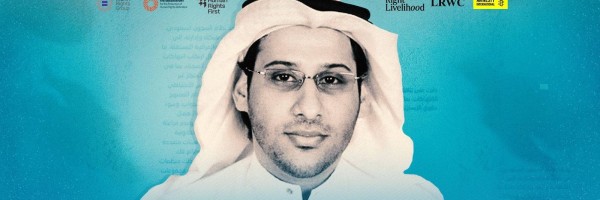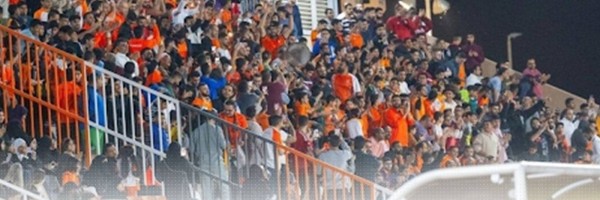On April 27, 2017 the United Nations announced that the UN Special Rapporteur on human rights and counter-terrorism, Ben Emmerson, would make an official visit to Saudi Arabia from April 30 to May 4, 2017 to monitor counter-terrorism initiatives and their impact on human rights.
ALQST finds it disappointing that this important visit was announced so late. It needs to be used to maximum effect to support efforts to counter terrorism without prejudicing human rights, and without allowing the Saudi authorities to turn the war on terror into a war on civil rights and liberties. ALQST wants to see the visit conducted in the proper manner, serving the Saudi people and others, and not cosying up to a government that repeatedly violates the rights of its citizens. ALQST would like to make the following points:
1 –Terrorist ideology and religious legitimacy.
ALQST believes that countering terrorism has to start by countering the thinking behind terrorism, its ideological foundations. Although there are many forms and varieties of terrorism, we are talking here about the terrorism that the Special Rapporteur will be concerned with on his visit to Saudi Arabia, namely the terrorism that has affected and continues to affect the Saudi people. It has the same basic rationale as all terrorism, that is the resort to violence, force and killing in pursuit of political and ideological change. It rejects democracy and human rights, or government by consent based on the popular will rather than despotic, autocratic rule in the name of Wali al-Amr (the Ruler in Charge). It cannot tolerate dissent, and it deals with those who hold opposing views by killing them or putting them in prison. It regards those who come to power by force as legitimate rulers, and sees violence as the only way to change things. Thus, in the view of the Saudi authorities, whoever comes to power, or can impose their authority, in a particular area becomes the Wali al-Amr there who must be obeyed and may not be criticised or argued with. And so, armed groups have come into being who fight those who disagree with them in an attempt to bring about change and seize control — this is their fundamental way of thinking. ALQST would like to point out that this is exactly what the Saudi authorities have done, and it is what they teach children in the Saudi school curriculum. This is the line promoted by the State’s official muftis, whom it appoints and shields from criticism. ALQST maintains that the Saudi authorities came to power by means of armed violence, and have stifled dissent and violated the rights of those who disagree with them ever since, by various means of oppression including killing and imprisonment. They have assembled an eclectic assortment of eccentric legal opinions dating back to the despotic rule of the Omayyads in the 7th century AD, and forged it into their own school of religious law (Wahhabism) that they have promoted to provide religious legitimacy and immunity for their rule. This cocktail of legal opinions that independent scholars reject, or find dubious at best, which is endorsed only by Saudi scholars and those close to them, provides the legal and ideological underpinning for the majority of armed groups, most notably Daesh, the so-called Islamic State.
The Saudi authorities claim religious legitimacy for their rule — although it was founded on violent conquest and the imposition of their authority by brute force and the threat of armed violence — while criminalising all peaceful means of seeking change. There is no recognised representation of the people in Saudi Arabia. People have no way to make their voices heard or express their opinions on any matter, great or small.
There is no elected Parliament, nor are there any independent tribal councils. (In the past, it was tribes that exercised the right to choose their representatives, but now they are controlled by the government.) Nor are there any municipal councils with any meaningful powers. There are no legally recognised independent civil society organisations, nor political parties or trade unions, and it is not permitted for groups of people to make demands collectively. The only way in which citizens can communicate with government officials is through the so-called ‘open door’ policy, which is nothing like a genuine channel for expressing opinions.
2 — Using the war on terror as an excuse to suppress human rights.
The Saudi authorities try human rights activists and campaigners for reform in the Specialised Criminal Court and pass harsh sentences on them. The most recent examples were two members of the Saudi Civil and Political Rights Association (ACPRA), Abdulaziz al-Shubaily and Issa al-Hamid; others include the prominent rights activist Waleed Abu al-Khair. They send civil society advocates to the Mohammed Bin Nayef Centre for Counselling and Care, where they are counselled by people who classify them as deviants. The renowned rights activist Mohammed al-Bajadi and campaigner for reform Khaled al-Omair are among those who have been sent to the centre for counselling.
Article 1 (a) of the Penal Law for Crimes of Terrorism and its Financing, introduced in February 2014, defines an act of terrorism as:
“Any act carried out by an offender in furtherance of an individual or collective criminal enterprise, whether directly or indirectly, which is intended to disturb public order, or undermine the security of society and the stability of the State, or which endangers national unity, or nullifies the Basic Law of governance or any part thereof, or which insults the dignity of the State or its status, or causes damage to one of its facilities or natural resources, or attempts to force a governmental authority to take action or refrain from taking action, or to threaten to carry out acts leading to the objectives mentioned, or incite others to do so."
According to this definition, anyone who insults the dignity or status of the State has committed a terrorist crime. Based on this Article, human rights and other activists have been found guilty of terrorism for contacting international rights organisations and the media to talk about human rights violations. The Saudi authorities regard this as insulting the state’s dignity and status.
This Article is further understood to mean that signing petitions, or actions such as sit-ins, demonstrations or hunger strikes, are to be seen as crimes of terrorism if they attempt to force the authorities to take, or refrain from taking, some action. The Saudi authorities are thus clearly signalling their rejection of any peaceful attempt by civil society to dissuade them from committing abuses or to encourage positive respect for human rights, however peaceful, legal and legitimate such attempts may be. These are terrorist crimes in that they go against the wishes of the government and are trying to ask for something that it disagrees with. For example, in December 2014 the Criminal Court in Al-Ahsa refused to hear a case brought against two women for driving their cars, and ordered its referral to the Specialised Criminal Court because it was deemed to be a terrorist crime.
3 — Excessively harsh treatment and abuse of those committing, or suspected of committing, acts that might be described as terrorism.
ALQST insists that whatever crime anyone commits, or is suspected of committing, there is never any justification for them to be denied their legitimate rights as laid down in law. They must never in any circumstances be tortured or be forced into making confessions or any other statements under duress. Neither can people be thrown into jail for years without being put on trial or charges being brought against them. A defendant charged with terrorism remains entitled to have his rights respected, not to undergo torture, to appoint a lawyer to defend him, and to have a fair and independent hearing that meets the recognised standards of a fair trial.
4 — The government’s responsibility.
ALQST recalls that in the past the Saudi authorities sent many young civilians without any military background into combat zones. It used to be officially announced (though not always) that young men were being sent, supported and encouraged to go and fight in Iraq and elsewhere. There have also been cases where the authorities have arrested young people and later released them, and they have subsequently joined armed groups or committed acts of terrorism after coming into contact with its ideology and leaders while in prison. Often they have had no previous connection with violence, or were in prison for taking part in peaceful demonstrations, only to come out radicalised and committed — or more strongly committed — to extremist ways of thinking, as if they had been on a training course on violence while inside. This shows a desire, or perhaps demonstrates a failure, on the part of the Saudi authorities to make more young people embrace extremist thinking. Political prisons in Saudi Arabia are becoming training grounds nurturing the ideology of violence.
We at ALQST therefore urge the UN Special Rapporteur on human rights and counter-terrorism, Ben Emmerson, and his team, to do the following on their visit to Saudi Arabia:
1 — Request a meeting with clerics appointed by the Saudi authorities, to see the extent to which the authorities are responsible for creating an ideological environment conducive to terrorist thinking. Try to meet Saleh al-Fawzan, the cleric closest to King Salman, and the mufti with the most influence with the Saudi authorities. He is the man they send to meet extremist groups, and invite to teach courses in mosques the whole time, and put on television; whose books they send all over the world, and who it is officially forbidden to criticise. The king, crown prince and deputy crown prince are all keen to show their high regard for him, and to present him as the cleric of the State. That is why we ask the Special Rapporteur to seek a meeting with him, and ask him about the issues we have raised in this statement: the Saudi authorities’ belief in the legitimacy of power based on armed conquest; the permissibility of peaceful political participation, including the actions of civil society organisations and political parties and peaceful protest; how to reconcile this with his views on change brought about by violence and force of arms, and ruling by forcibly imposing orders; and his views on whether might is right, must be obeyed and may not be criticised. From this it should become clear to the Special Rapporteur’s team, and the team will be able to make clear to the world, that these things are all connected, and together provide an essential, serious starting point from which to counter terrorism in practical terms, and not just in theory.
2 — Meet civil society and human rights activists who have been punished in the Specialised Criminal Court or under the Anti-Terrorism Law, or who have received counselling in the Mohammed Bin Nayef Centre, and examine the legal validity of the law, the SCC and the centre. Likewise, examine the lack of independence of the SCC and other Saudi courts, and of the Bureau of Investigation and Public Prosecution.
3 — Examine the Saudi authorities’ commitments to ban torture and other cruel, inhumane or degrading treatment or punishment, and their commitments to guarantee every defendant a fair trial, and look at the lack of any guarantees of public oversight of these commitments. Ask the Saudi authorities about the famous report that Dr Muhsin al-Awaji submitted to the Minister of Interior in 2000 on torture in Saudi prisons. Nothing has been done about it in over 17 years, even though the report had been requested by the minister himself. There has never been a chance since then to expose the scandal of horrific cases of torture in Saudi Arabia, so we are calling for pressure on the authorities to allow civil society to set up civil and human rights organisations to play their part in monitoring the performance of government agencies, exposing abuses, and holding them to account.
4 — Press the authorities to allow genuine visits by prison monitors, not just public relations exercises. Visits need to be able to take place at random, without prior notice and preparation, without the authorities being allowed to set the time and place of the visit, and with monitors able to meet whichever prisoners they ask to meet, whether chosen by the visitors team or selected at random. They should be able to meet a broad cross-section of the inmates, from various part of the prison, and in privacy, so that inmates are safe from intimidation by officials accompanying or overseeing the team of visitors. The team must be able to publish its report on its findings without any possibility of the authorities being able to torture or punish the source of its information. Any visit not meeting these criteria is just a public relations exercise to make the regime look good, and puts prisoners’ safety at risk.
In conclusion, ALQST asks for these issues be studied closely and taken into consideration before the UN Special Rapporteur embarks on his visit to Saudi Arabia, so that the maximum benefit can be gained from it, in the interests of countering terrorism and protecting human rights, and not playing into the hands of the repressive authorities. It is they who have caused the growth and spread of terrorism, and suppressed fundamental human rights and freedoms.


